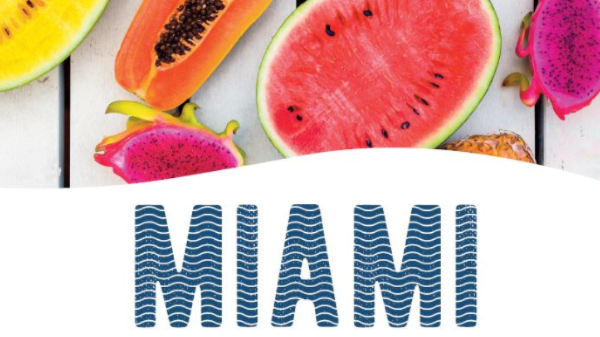Tropical fruits and vegetables—both imported and locally grown—continue to gain steam with U.S. consumers in South Florida and the rest of the country.
“At Brooks Tropicals, we’ve grown tropical fruits for almost 95 years both here in Miami and across the Caribbean, and in Central and South America,” says Mary Ostlund, marketing director for Brooks Tropicals, LLC, BB #:110555 a grower-shipper that both imports and exports. “Our relationships with growers in the tropics are vital to providing premier tropical produce to North America.”
Ostlund says the company’s top specialties include Caribbean Red papaya (grown in Guatemala), SlimCado avocados (grown in Miami and the Dominican Republic), starfruit, passion fruit, dragon fruit, coconuts, uniq fruit, lychees, and limes.
“Consumers are reaching more and more for tropical fruits in pursuit of eating healthier,” she says. “The bright colors and odd shapes of tropicals grab the attention of the curious—and the exotic tastes keep them coming back for more.”
She says many consumers who sample tropical fruits on a cruise are often eager to enjoy more of these delicious items when they return home.
Mangos, Ostlund says, originally drove tropical fruits out of the specialty category and into mainstream fruit aisles. “Today, Caribbean Red papayas, tropical avocados, and starfruit are firmly mainstream,” she points out.
“Not far behind are passion fruit, dragon fruit, and Solo papayas,” she says, adding, “passion fruit was probably noticed by consumers in their favorite restaurants with iced tea, ice cream, and salads being topped with the fruit.”
Lychees, a much-loved fruit of Chinese emperors, are also becoming a favorite on this side of the world. Also known as the Chinese cherry, the lychee is a delicately sweet, juicy, and aromatic tropical fruit.
“It’s a short season here in Florida, so you have to get them while you can,” Ostlund says.
This is multi-part feature on the South Florida produce industry adapted from the January/February 2020 issue of Produce Blueprints.



